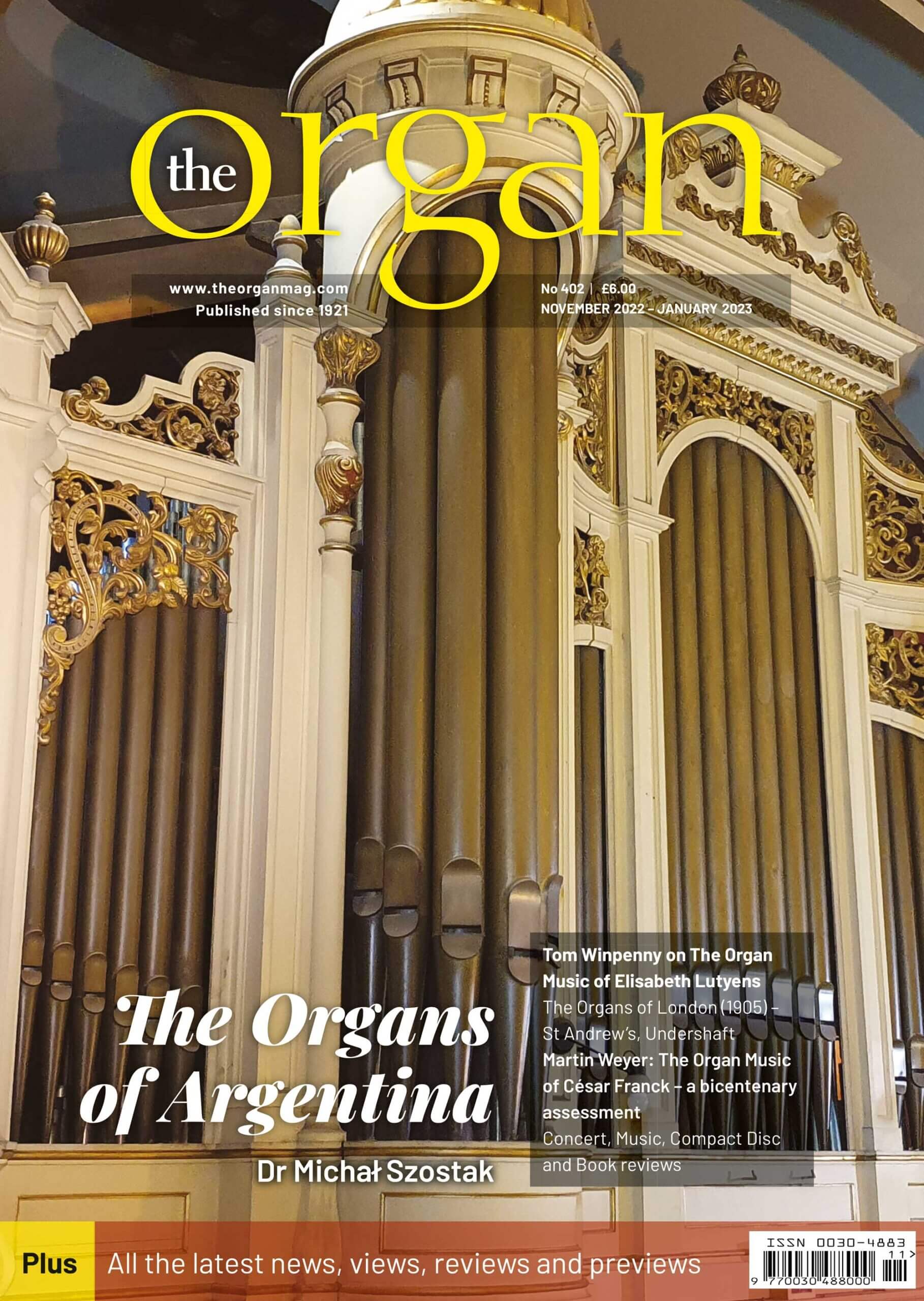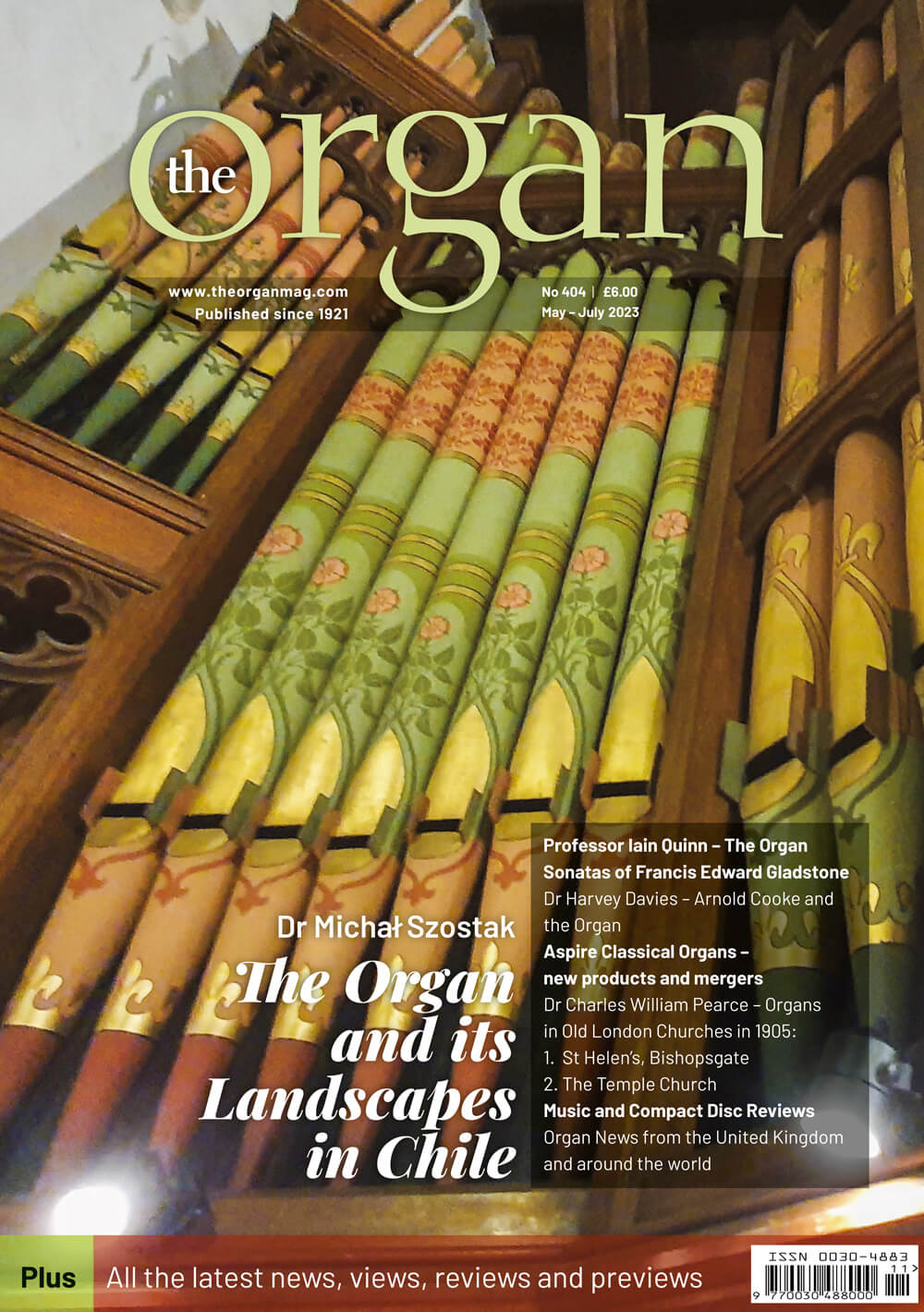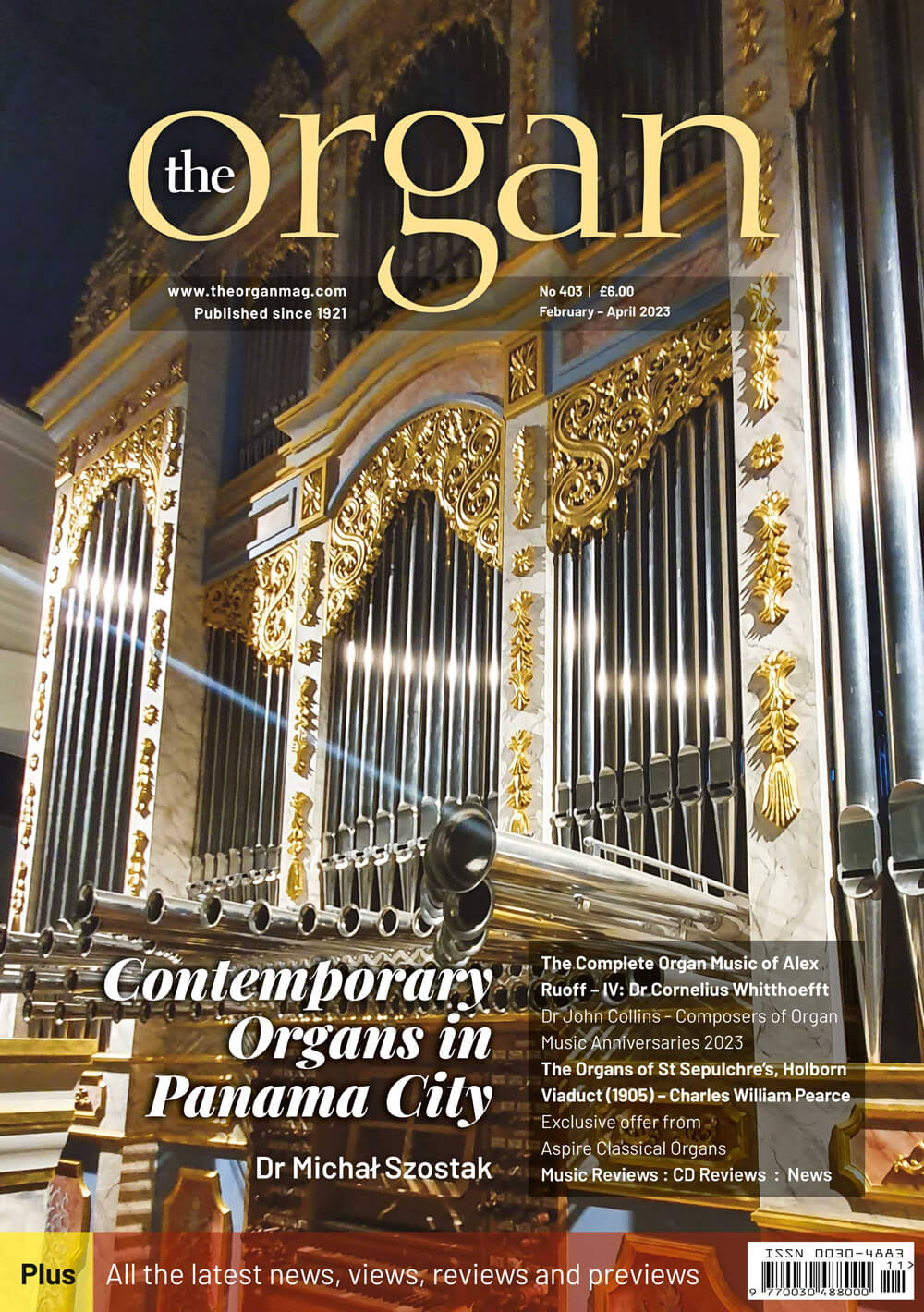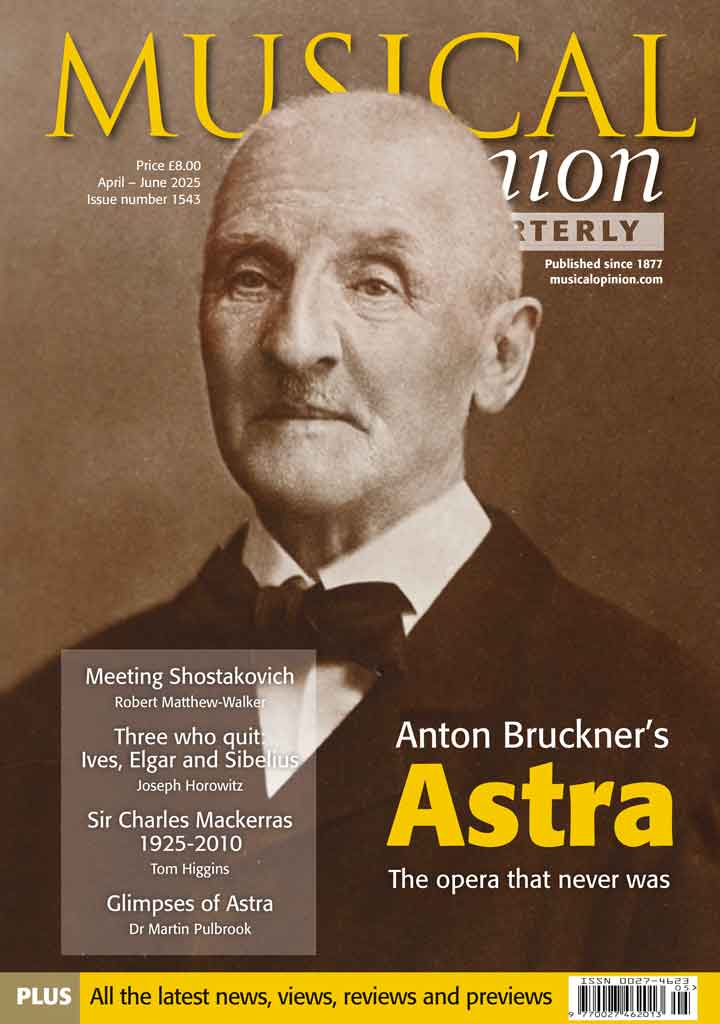

Current Issue
Previous Issues
Spring 2025. Issue 1541
Winter 2024. 1540
Autumn 2024. 1539
Summer 2024. 1539
Spring 2024. 1538
Winter 2023. 1537
Autumn 2023. 1536
Summer 2023. 1535.
Spring 2023. 1534.
Winter 2022. 1533.
Autumn 2022. 1532.
Summer 2022. 531.
Following the dispicable and illegal invasion of Ukraine, the Summer 2022 edition of Musical Opinion carries a large article about Sergei Prokofiev, arguably its most famous composer along with an overview of the Ukrainian classical music scene over the last one...
Spring 2022. 1530.
Winter 2021. 1529.
Autumn 2021. 1528.
Summer 2021. 1527.
Spring 2021. 1526.
Winter 2020. 1525.
Summer 2020. 1523.
Spring 2020. 1522.
Explore By Topic
Autumn 2020. 1524.
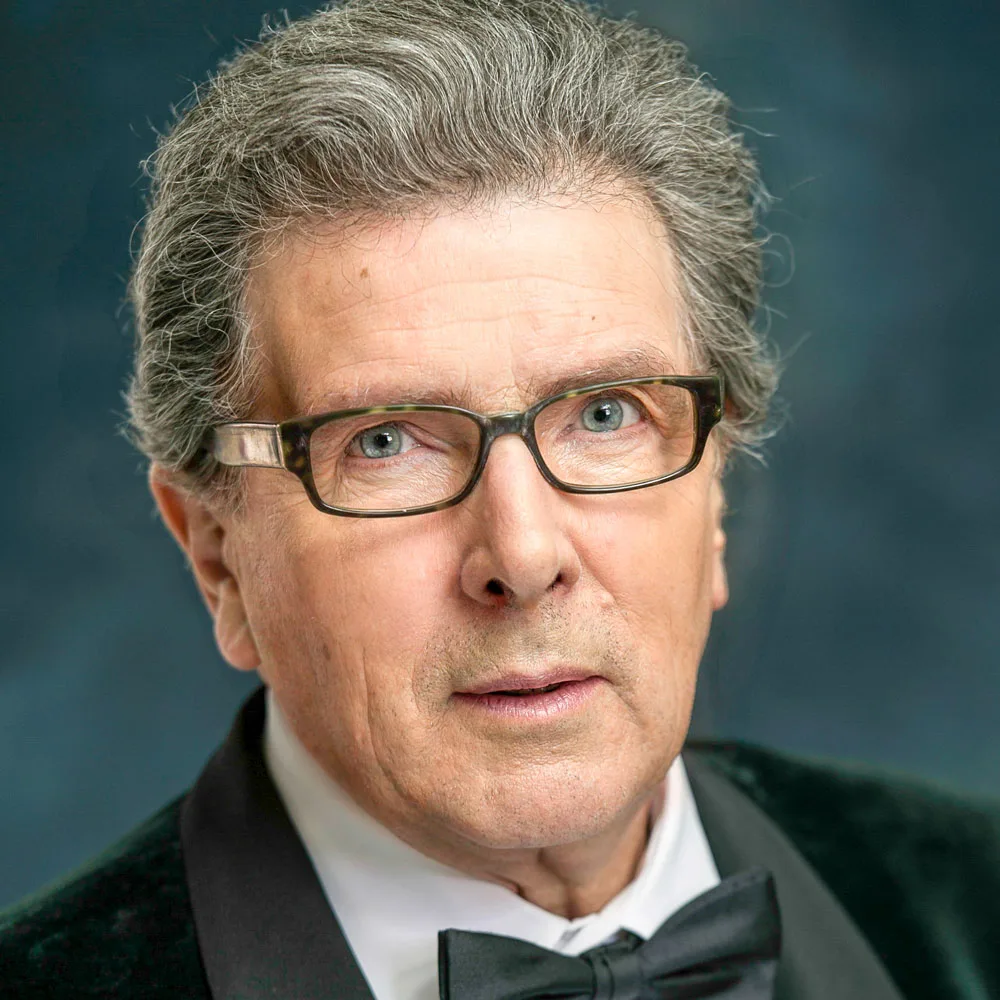
'Unfolding a dream’ – realising the concept of symphonic film
Howard Blake
As a 19-year old composition student at the Royal Academy of Music I studied comparative art. Wagner had disgraced the notion of a gesamtkunstwerk since it had given birth to the flawed utopianism of Hitler. The concept of a philosopher/god capable of personally fusing every available means of expression into an overwhelming musico/theatrical experience traversing four days -‘The Ring’ – was not to be discussed as an artistic direction, let alone emulated. My first viewing of ‘The Battleship Potemkin’ with full orchestral score persuaded me that were Wagner living he would have pursued the path of film rather than theatre. In the early days of film around 1900 it appeared obvious to many that moving art (film) would rapidly replace static art (framed pictures). Attempts were made by UFA in Germany and at the start of sound by such as Dali and Bunuel in Paris and Aleksandrov and Eisenstein in Moscow, but from the start film, the cinema, was voraciously appropriated by the scriptwriter and actor industries. There were exceptions: René Clair in France created a feature film moving between surrealism and operatic fantasy [‘Les Belles de Nuit’], in the UK Michael Powell experimented lavishly with out-of-body experiences in ‘A Matter of Life and Death’, John Sturges in Hollywood risked an entire feature with stream of consciousness voice-over in the superb ‘Old Man and the Sea’.
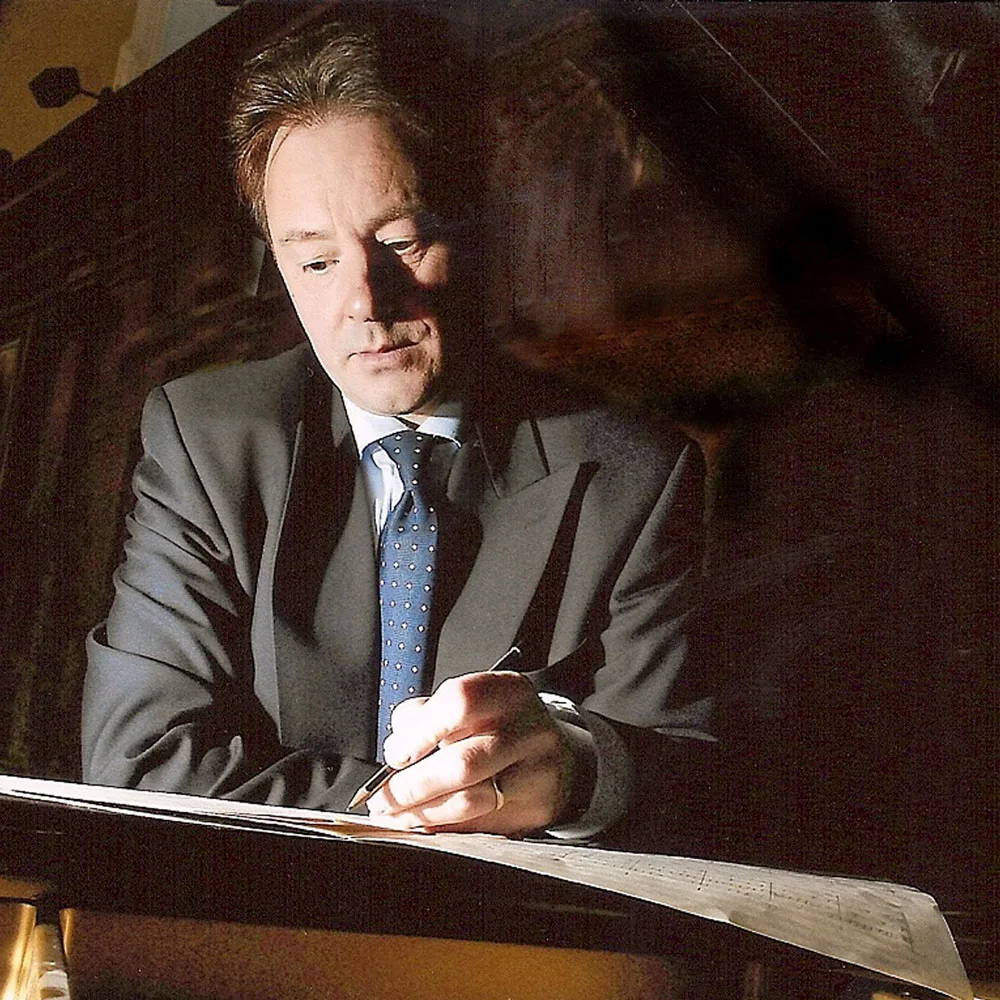
Ian Venables’s Requiem
Pianist Graham J Lloyd discusses
I was fortunate enough to attend both the liturgical and concert premieres of Ian Venables’s new Requiem. Afterwards, I mused on what an enormous task it must be for a composer to reach the point where their first creative ideas have, after alchemic transformation, become a fully fledged work that is about to be heard by an audience for the first time. In Venables’s case, that journey from ‘genesis’ to ‘birth’ was a mere(!) two years and now his Requiem has been recorded on Siva Oke’s award-winning SOMM label by the choir for whom it was written. Adrian Partington and Gloucester Cathedral Choir gave the work its first liturgical performance in the hallowed atria of that building in November 2019 as part of their All Souls’ Day service. However the Requiem received its first concert performance earlier that year by the London-based choir Evoke, under its dynamic conductor Victoria Ely. After these performances, I mused further on what makes a composer write a particular piece of music and asked the questions “…why do composers choose write requiems” and more specifically “ why did Venables write his?”
When the 15th century Franco-Flemish composer Johannes Ockeghem began writing his polyphonic setting of the Roman Catholic Requiem Mass – Missa pro defunctis or Mass for the dead, little could he have known that nearly 600 years later, composers would still be using that liturgical form as a way of expressing thoughts and feelings on the ineffable nature of the human condition and in particular death itself.
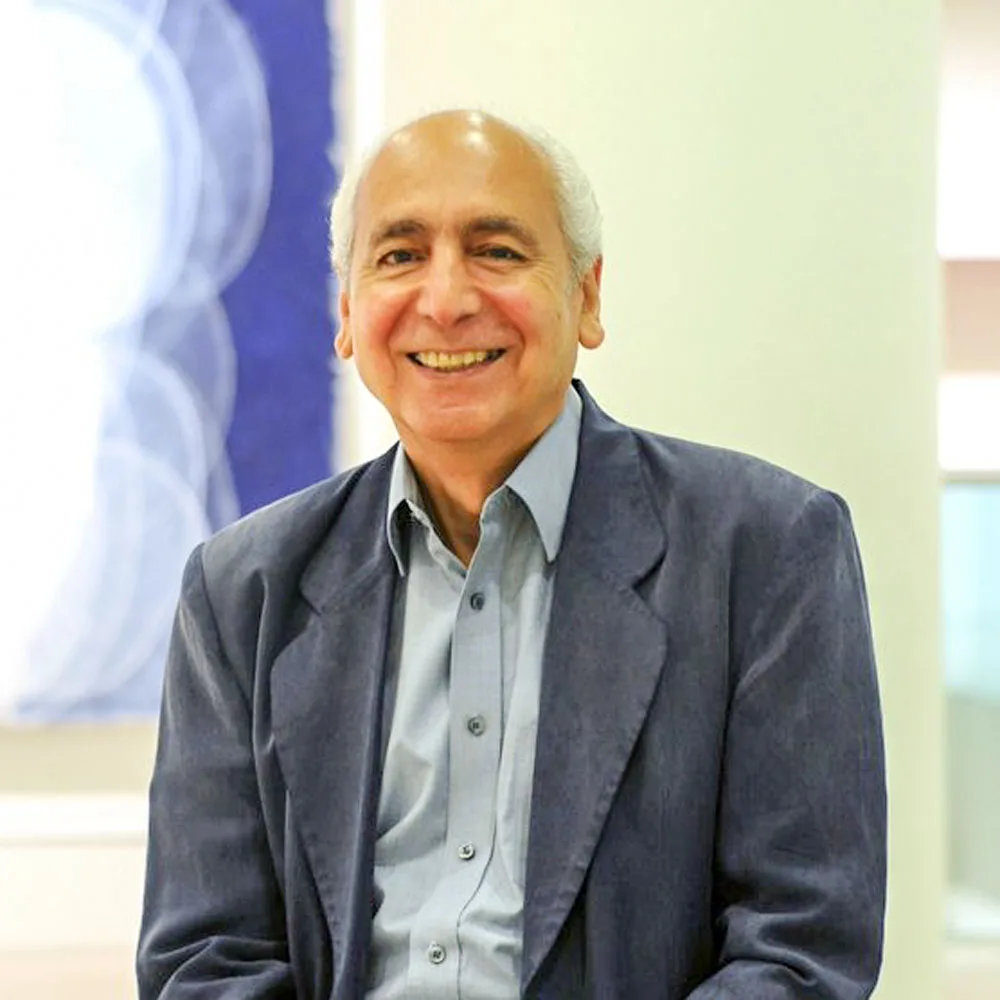
Recording the Complete Piano Works of Beethoven, and Tippett’s Piano Concerto with the composer
Martino Tirimo
Beethoven, Tippett and tempo
We discussed whether having recorded a work, Tirimo feels he would play it differently, change his interpretation. As he responded, “ Nothing is fixed… allow me to mention one example I am very fond of mentioning this since it was an eye opener for me. You may know that I had a … I still think that the Tippett piano concerto is one of the great piano concertos of the twentieth century and should be played much, much more. I had the great fortune to do a number of concerts with Sir Michael and we recorded it as well. I was extremely nervous when I first went to play it to him, because I thought that his metronome mark for the first movement was just too fast. And I didn’t know quite how to approach this. So, we had a wonderful lunch and a wonderful conversation for a couple of hours, and then it was time for me to play and I said ‘Sir Michael I have to before I play I have to apologise to you I just don’t feel this opening movement at this tempo…that you ask.’ ‘Well, play and we will see’ he said. And when I finished, to my great relief he said ‘But that’s exactly how I want it’. I was so overjoyed .
We did some concerts in Germany I remember and a concert at York University, and then about a year later we did the recording.
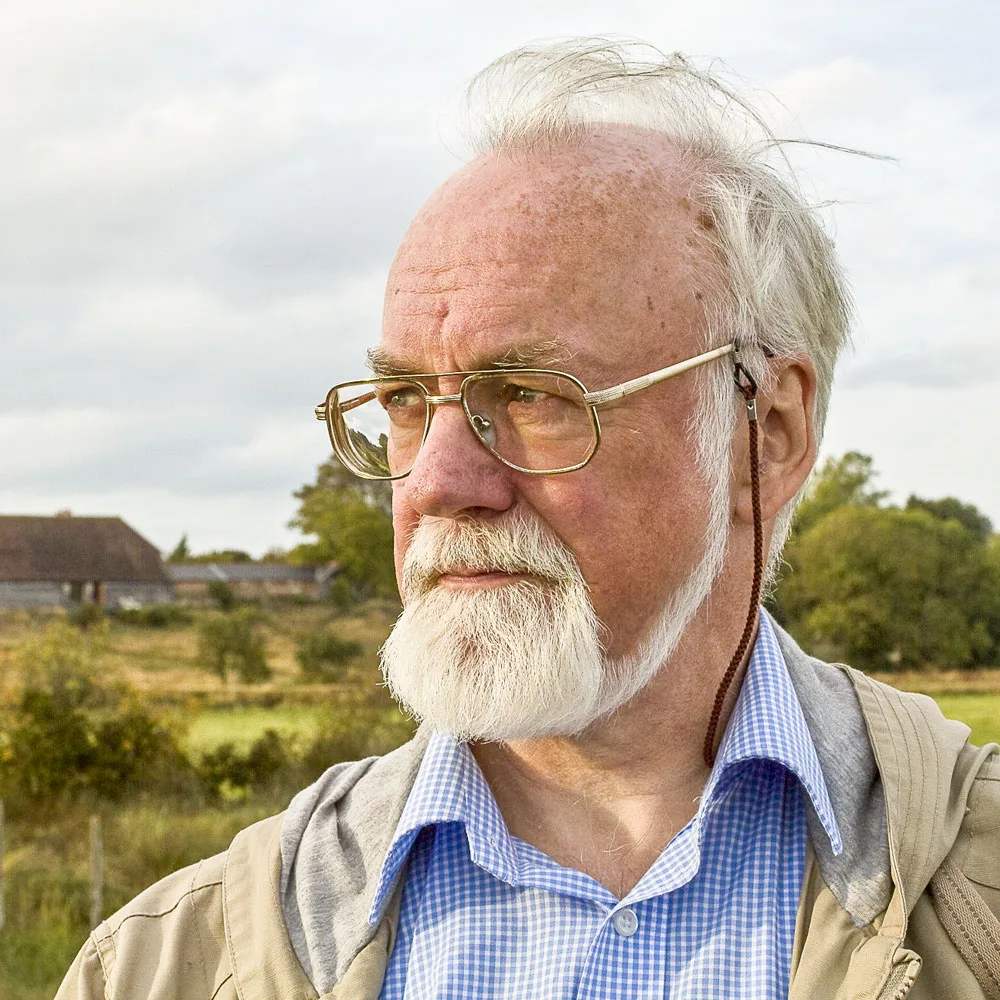
‘Music is Music’ – Barenboim plays ‘Take the A-train’, Miles Davis and John McCabe
Monica McCabe
Reflects on a little-appreciated influence on her late husband’s music throughout his composing life.
In his last public speech, given on May 22nd2014 at the event known as the Ivors, where he was presented with the BASCA Award for Classical Music, John McCabe said, ‘I want to finish by briefly touching on my own musical credo….It is that Music is Music. I have never seen the point in dismissing any type of music out of hand. I firmly believe in the inter-relationships of different musics. It’s significant to me that Frank Sinatra apparently and quite rightly revered the music of Vaughan Williams. I’ve had a long and wonderfully enjoyable career in music, a very diverse one, too….I still enjoy my LPs of Indian classical music and my pop and jazz singles from the 1960s and 70s – these connections have, I believe, enriched the musical resources with which I can compose.’
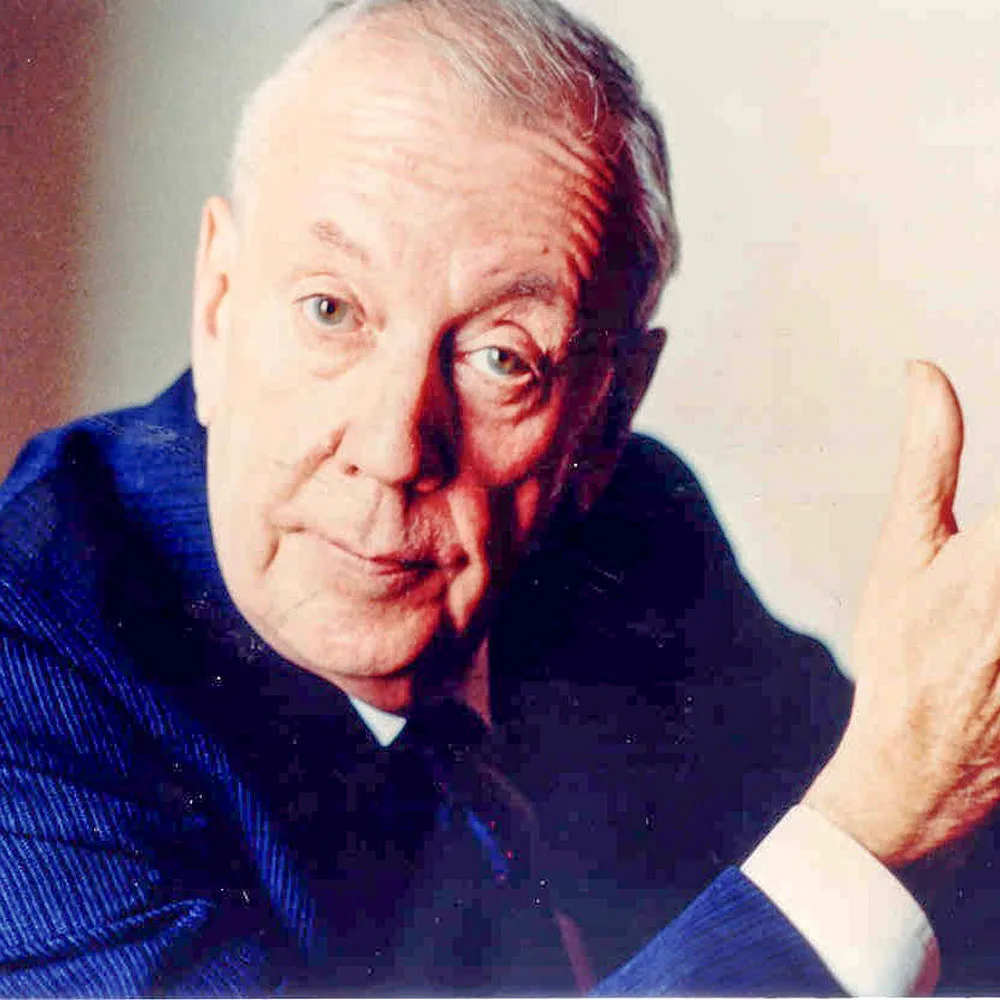
Musica in Tempore Belli – Lockdown Listening
What our correspondents have been listening to
Piers Burton-Page
To my surprise and delight I have recently been invited to become the Hon. President of the Malcolm Arnold Society, stepping into the shoes of the late and much lamented Keith Llewellyn. So I cannot do better here than identify the piece of Malcolm’s which for me exemplifies much that I love about this great British composer. In these troubled days, the piece I think I would happily endorse for anyone with an open mind, and perhaps with some pre-existing knowledge of how chamber music works, is his Second String Quartet, Opus 118: I am sometimes puzzled as to why it does not appear much more often on the concert platform, as it is attractive and eminently playable, as well as illuminating various aspects of the composer’s many-sided musical personality. In it one can find, in no particular order, within its four highly contrasted movements: melodic inspiration, harmonic richness, deft humour, Irish whimsy, flashes of aggression, meticulous instrumental craftsmanship …. much else besides, and all welded into a satisfying half-hour whole. The Allegri Quartet led by Hugh Maguire played the first performance, and you can still hear that pioneer version on YouTube; alternatively, there are a couple of downloads to purchase, but I think there is currently only one CD, by the excellent Maggini Quartet.
and eight others …
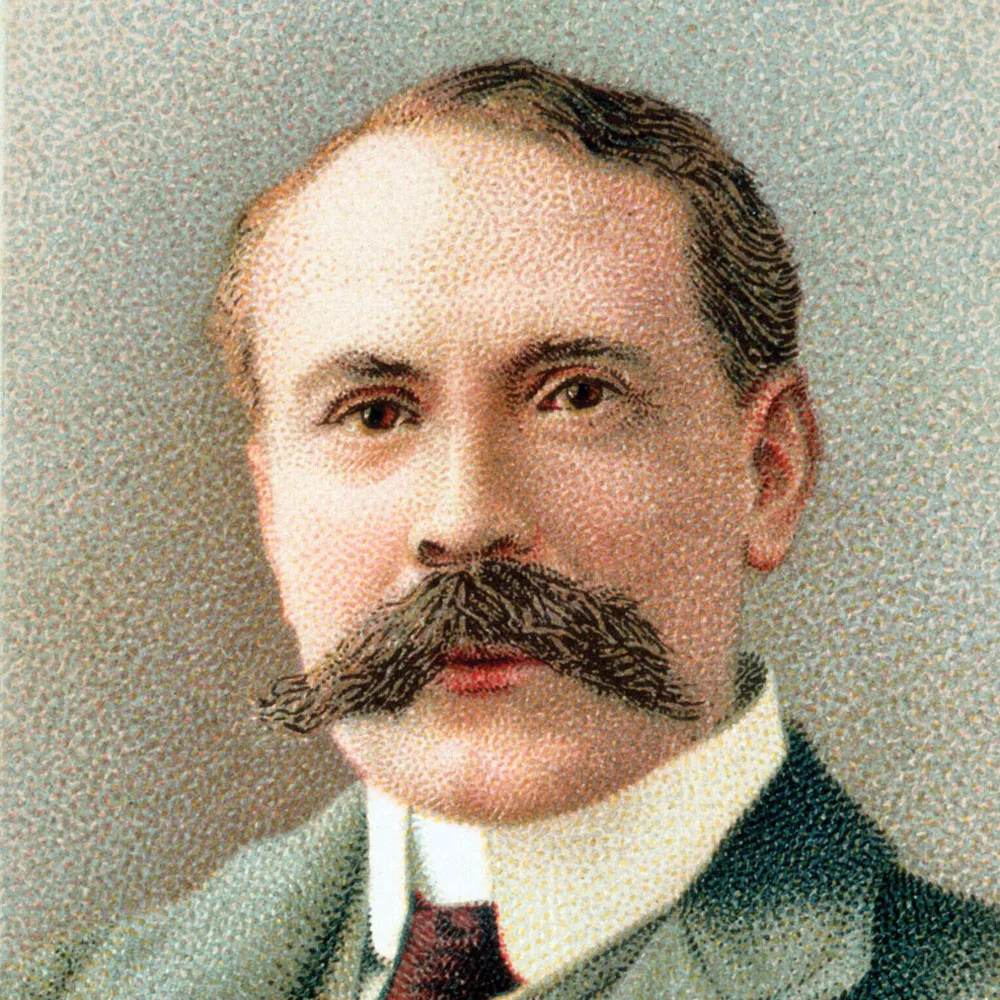
Elgar as Cryptograher – Tuning and Turing
Wayne Packwood
In the musical world Sir Edward Elgar is known as one of the greatest English composers with compositions such as the Enigma Variations, the Pomp and Circumstance Marches and The Dream of Gerontius . All are enjoyed by thousands daily.
What is lesser known about Sir Edward is that he was accomplished in the skills of cryptography, and that to Sir Edward, these two talents within his world were entwined so much, it would be difficult to progress with only one element.
An example of this equilibrium was the love of his pets. Meg, Marco & Mina
I am sure many have spotted that when you lay the names of his constant companions in a line in the order they came into his possession, Meg & Mina form the word Enigma without interrupting Marco, he also ensure the letters were methodically placed. i.e. You start at the letter E (second letter from start then jump to the letter N (second letter from the end)
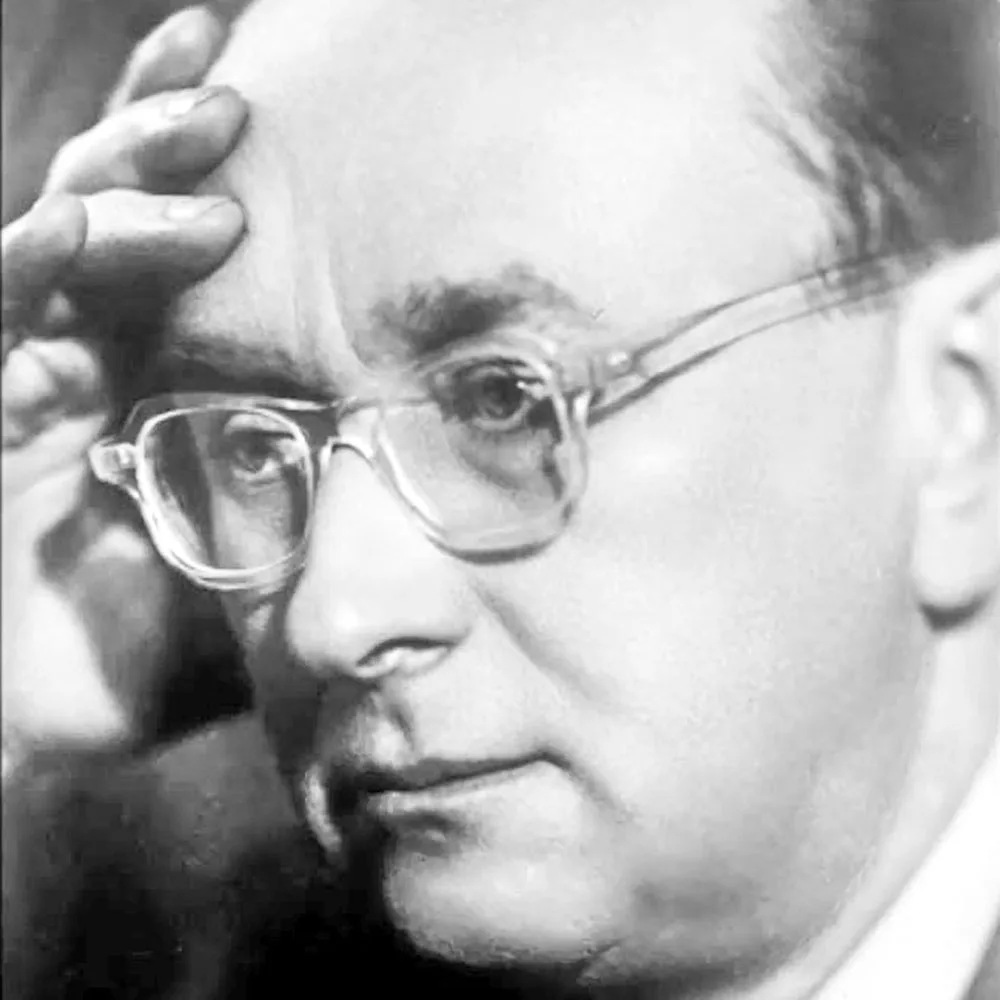
The Life and Music of Nikolay Anosov
Gregor Tassie
The significance of the notable Soviet musician, a composer and conductor, thee father of Gennady Rozhdestvensky, is outlined in this unique article.
The name of Anosov will be familiar to only a small number of the musical public for his work was rarely seen in the West – despite an enviable number of recordings – his death at the age of just 62 years was a terrible loss to Russian music. He is better known as the father of Gennady Rozhdestvensky – one of the 20th -century’s most celebrated conductors. Anyone looking at their portraits will be amazed at the facial similarity and indeed their manner of conducting. Wisely, when he began his career, Rozhdestvensky decided to take his mother’s name to avoid confusion with audiences.
Nikolay Anosov was born in 1900 in the southern city of Borisoglebsk, the son of the local Volga-Kamsk bank manager. Nikolay had three sisters who all enjoyed successful careers. His mother’s family had a notable background for her grandfather fought in the Crimean War and was captured by the British and spent two years imprisoned in Portsmouth.
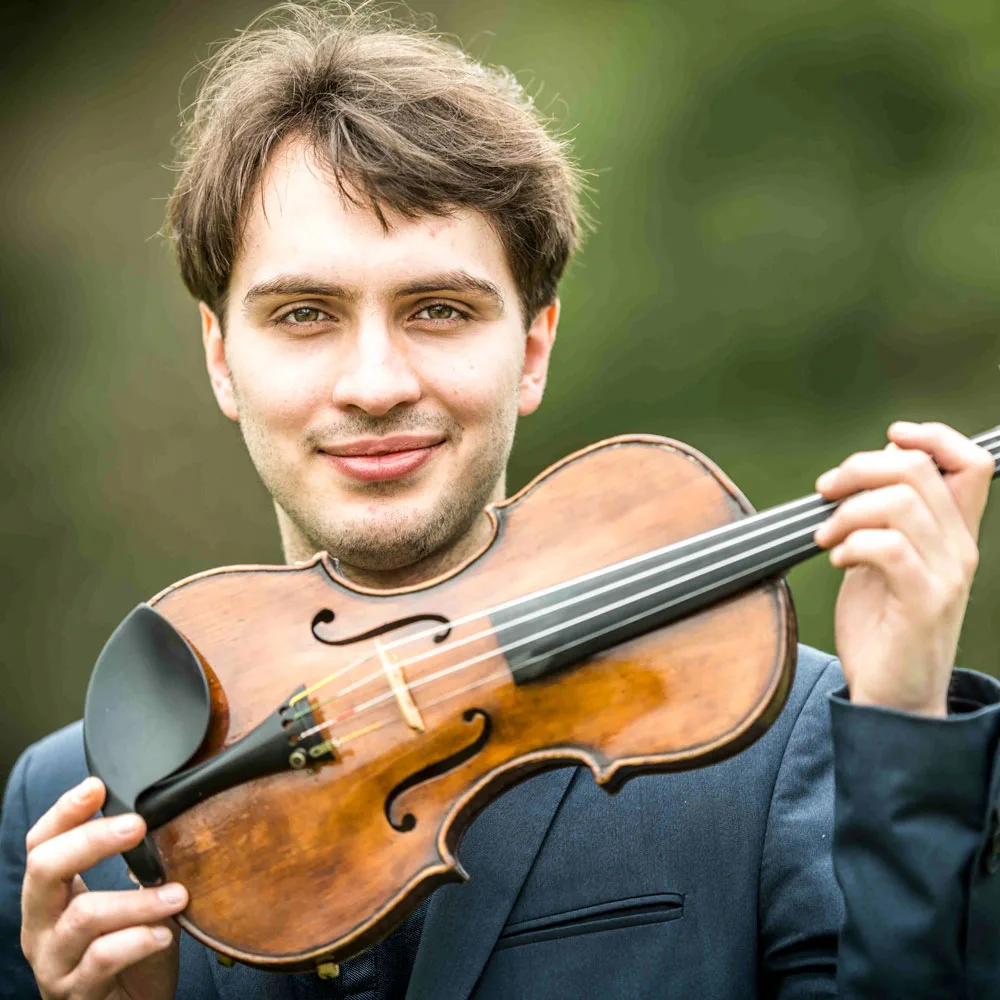
L’histoire du violon d’un soldat dans la guerre et la paix
Jenny Pineau-Benois
One day in Paris in about 1906 Lucien Durosoir was at a flea market when he saw an old violin case. He asked the merchant to open it. Inside, there was a violin – dirty, almost black. The merchant told him that he had bought it at the flea market in Geneva.
Lucien Durosoir bought this violin for next to nothing and had it restored. He owned a Stradivarius violin, but this one – it sounded great,
Lucien played concerts with it and years later, when he enlisted inthe French Army in 1915, took it to the War with him. When practicing between German attacks, he was noticed by a French General, who asked him to form a group of musicians and play for French Officers in their mess. “The violin saved my life” – he said after the War.
Fritz Kreisler, also serving at that time in the German Army, was similarly engaged and played in the officers’ mess on the other side of the front line. Lucien Durosoir formed a trio with Maurice Maréchal and André Caplet Maréchal had made his cello out of mortar bomb boxes.

